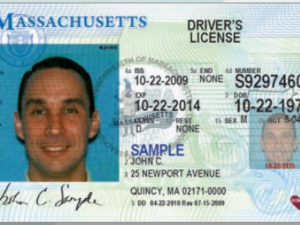A terrible law that required a license suspension for any drug conviction has been repealed! This is great news!
Today, the Governor signed a bill repealing that pointless law, and giving people a reasonable chance to get their lives back together even if they’ve been convicted for drug possession.
The automatic suspension of your driver’s license law was passed in 1989 as part of the “War on Drugs”. Any criminal drug charge, including simple marijuana possession, mandated a license suspension of 6 months to up to 5 years, and a $500 fee to reinstate your license after the suspension period passed.
This law that solved no problem was with us for 17 long years, making it pointlessly difficult for someone who caught a drug charge to function in society and get a job.
The new law only maintains a license suspension for someone convicted of trafficking in Class A or Class B substances like heroin, cocaine, fentanyl or other opiates. And even in those cases, you are still eligible to apply for a hardship license.
 Of course, license suspensions may still apply for charges related to driving, such as OUI drugs, but that is a separate issue and, at least, has some logic to it. Any criminal driving offense like negligent operation of a motor vehicle, or civil offense that puts you over the top on points, surchargable events, or designates you a danger on the road can get you suspended of course.
Of course, license suspensions may still apply for charges related to driving, such as OUI drugs, but that is a separate issue and, at least, has some logic to it. Any criminal driving offense like negligent operation of a motor vehicle, or civil offense that puts you over the top on points, surchargable events, or designates you a danger on the road can get you suspended of course.
The old law was purely punitive and nonsensical. It simply made it unnecessarily difficult for someone to keep or find a job after a drug conviction, since many people need to drive to get to work, or need to drive as a condition of their employment.
Via WBUR, just how insane, pointless, and counterproductive this rule was:
About 7,000 people had their licenses suspended in 2015 — even if the drug conviction did not involve operating a vehicle, Senate President Stan Rosenberg, a Democrat, said in the governor’s office statement.
And of those people who had their licenses suspended, a senator had previously testified, about 2,500 were able to pay the reinstatement fee, while another 700 were rearrested for driving without a license.
Hopefully, this move is a trend toward more reasonable criminal justice reform issues.
Today we can remove a barrier to successful re-entry, employment and further treatment and recovery. #cjreform pic.twitter.com/IT8fxaSKQ5
— Charlie Baker (@MassGovernor) March 30, 2016